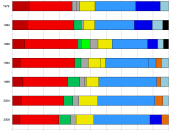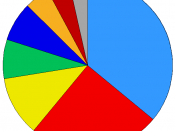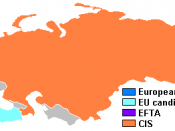Charles de Gaulle stated: ÃÂPatriotism is when love of your own people comes first; nationalism, when hate for people other than your own comes first.ÃÂ Throughout history, France and its people have upheld an age-old tradition of fiery, strong nationalism and patriotism under the ideas of Charles de Gaulle. However, in recent years, this nationalism has come under fire by the persistent push for European integration by various parties in France and the European Union. Since the passing of the Schuman Declaration in 1950, which established the European Coal and Steel Company, integration has been key in the development of European countries, although becoming increasingly controversial as it becomes more in-depth (Guyomarch, Machin and Ritchie 4). In the 21st century, France has increasingly seen itÃÂs own nationalistic values, found in legacies such as Gaullism, being compromised by the push for European integration spearheaded by the EU. This compromise of values, combined with the lack of a bipartisan system and large-scale protests, has created a huge political backlash that is currently the number-one political challenge in France.
Since the 1960ÃÂs, intellectual and political leaders such as Charles de Gaulle have strongly advocated FranceÃÂs independence from the rest of Europe. Gaullism is defined in the Wikipedia online encyclopedia as ÃÂa desire for France's independence from foreign power.ÃÂ This is the basic ideology of the French people, or at least until recently. The idea of European or global integration began to become mainstream only in 1992, with the passing of the Maastricht Treaty, which was the first major push towards a formal European integration. In true spirit of French nationalism, only 51% of citizens who voted on this treaty voted to ratify it (Flood 57). From this rose extreme division between those who supported European integration and those who did not.


